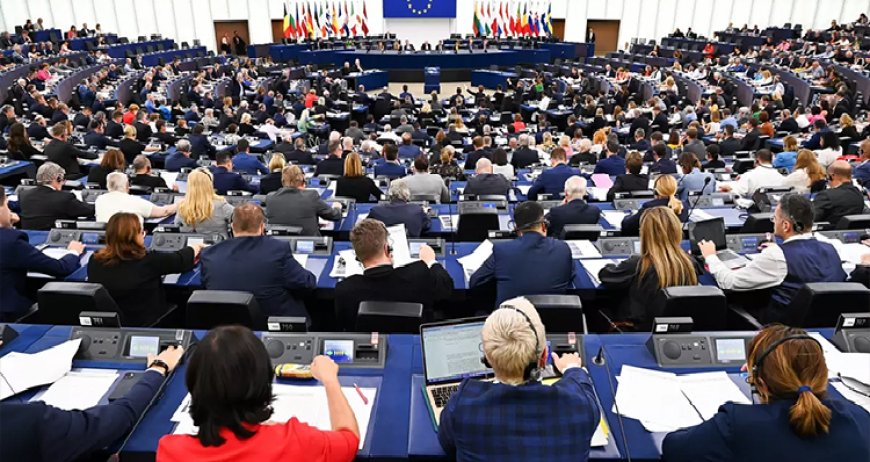Far-right advances in EU Election, France calls snap national vote

1.
While the center, liberal, and Socialist parties were set to retain a majority in the 720-seat parliament, the vote delivered a domestic blow to the leaders of both France and Germany, raising questions about how the European Union’s major powers can drive policy in the bloc.
In a risky gamble to re-establish his authority, Macron called a parliamentary election, with the first round on June 30.
Similarly, German Chancellor Olaf Scholz endured a painful night as his Social Democrats scored their worst result ever, suffering losses to the mainstream conservatives and the hard-right Alternative for Germany (AfD).
Meanwhile, Italian Prime Minister Giorgia Meloni saw her position strengthened, with her arch-conservative Brothers of Italy group winning the most votes, according to exit polls.
A rightward shift inside the European Parliament may make it tougher to pass new legislation needed to respond to security challenges, the impact of climate change, or industrial competition from China and the United States. However, the clout of euro-skeptic nationalist parties will depend on their ability to overcome differences and work together, as they are currently split between two different families, with some parties and lawmakers not yet aligned with these groups.
The center-right European People’s Party (EPP) will be the largest political family in the new legislature, gaining five seats to field 189 deputies, according to a central exit poll.
In Poland, Prime Minister Donald Tusk’s centrist Civic Coalition, a member of the EPP, was set to win the European vote. In Spain, the center-right People’s Party, also part of the EPP, outperformed Socialist Prime Minister Pedro Sanchez.
These results were positive for EPP member Ursula von der Leyen, who seeks a second five-year term at the helm of the powerful EU executive arm.
The center-left Socialists and Democrats are poised to be the second-largest political family, even as they lost four lawmakers, ending up with 135, according to the exit poll.
Political observers attribute the shift to the right to rising living costs, concerns about migration, the expense of the green transition, and the war in Ukraine—issues that nationalist and populist parties have capitalized on.
Eurosceptic nationalist groups ECR and Identity and Democracy (ID), along with hard-right lawmakers from Germany’s AfD, secured a total of 146 seats, a gain of 19, according to the exit poll.
The exit poll projected that pro-European center-right, center-left, liberal, and Green parties will retain a majority with 460 seats, though reduced from their previous 488 in the outgoing chamber of 705 deputies.
Europe’s Green parties in particular suffered heavy losses, dropping to 53 deputies from 71 in the outgoing parliament.

















































